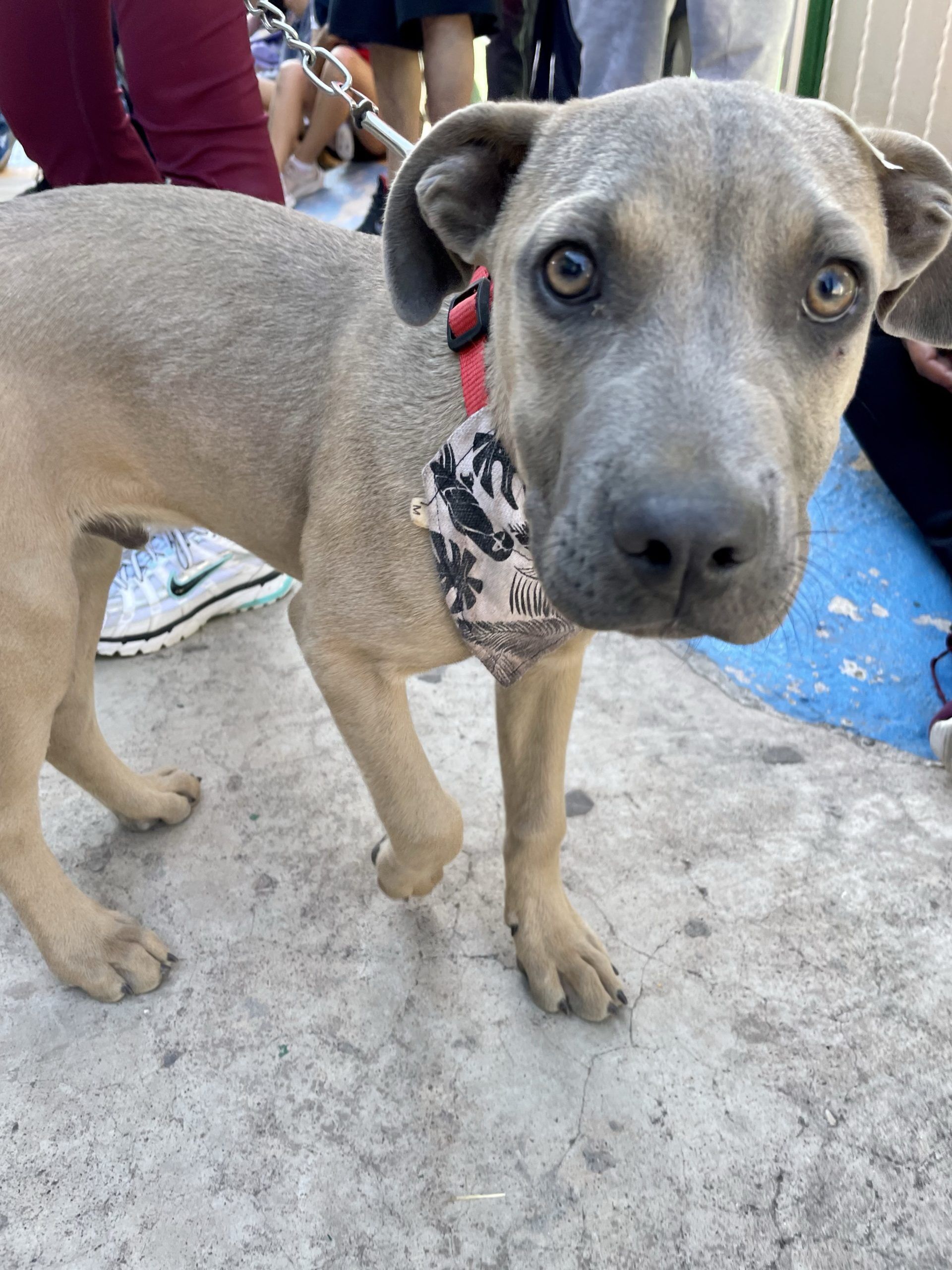
Meet Brus! Brus and his family attended our April 24th, 2022, campaign, where Brus was neutered by veterinarian student Laura Uvalle while under the supervision of Ricardo Montes de Oca, MVZ. Follow Brus’s progress through a typical sterilization campaign.
Our spay/neuter program
We provide low-cost spay/neuter services to residents throughout the municipality, including the city’s outlying villages. To date, more than 24,000 dogs and cats have been sterilized with our support. That support includes organization, veterinary services, medical equipment and supplies, and assistance from volunteers.
Sterilization campaigns are held twice each month. Pet owners are asked to contribute the equivalent of US $7.50 per case, but those unable to pay receive the service free of charge. In 2022 we sterilized 1,333 animals.
Why do we focus on sterilization?
There are not enough homes for all the puppies and kittens that are born in our city. Too many dogs and cats end up on the streets, where they are exposed to hunger and thirst, disease, mistreatment, injury, and early death. An adoption saves one life, whereas spay/neuter saves thousands of lives.
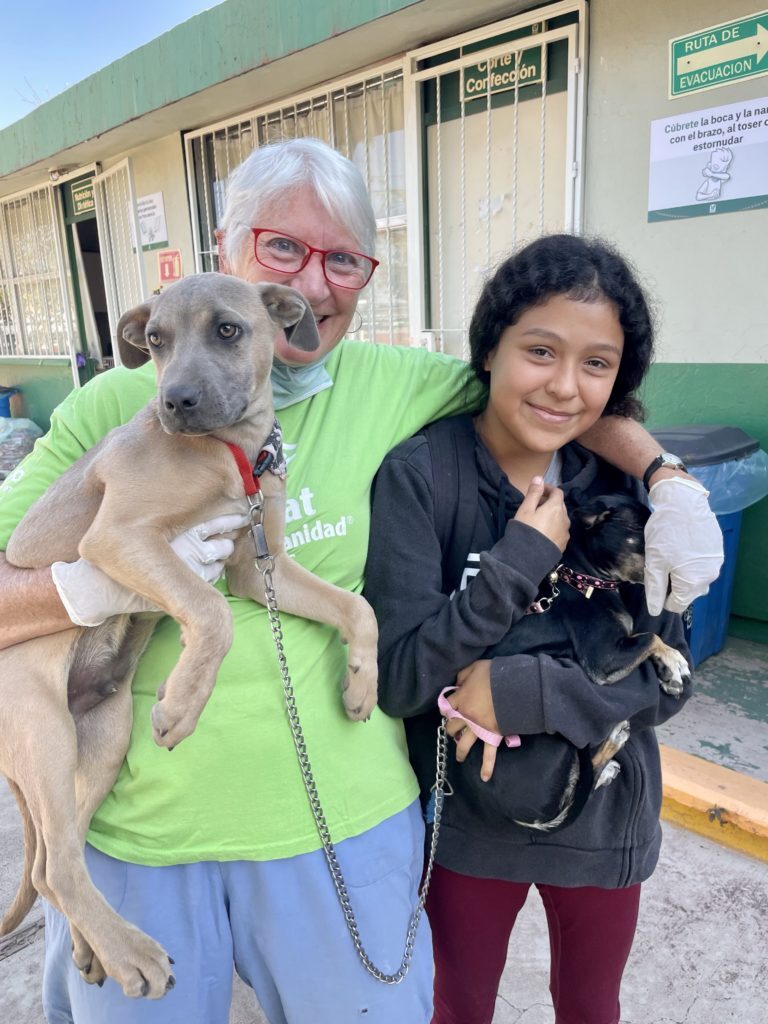
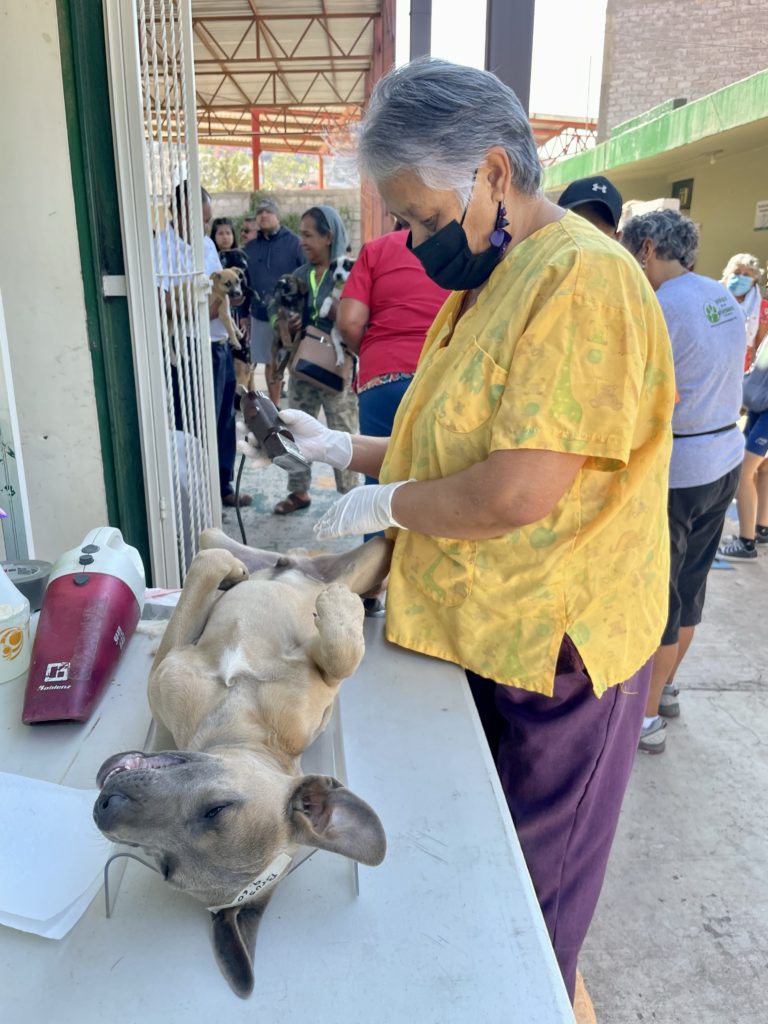
What is sterilization?
Sterilization is a surgical procedure to remove the ovaries and uterus if an animal is a female, or the testes if it is a male.
What are the benefits of sterilization?
Sterilizing pets prevents females from going into heat and reduces male behavioral problems such as fighting and urinating to mark territory. By preventing venereal tumors and other diseases that are common among intact dogs and cats, sterilization increases pets’ chances of living a long and healthy life. Finally, it reduces the number of unwanted pets in the community. Strays not only are at risk of injury, disease, and early death, but also pose health and safety hazards to humans.
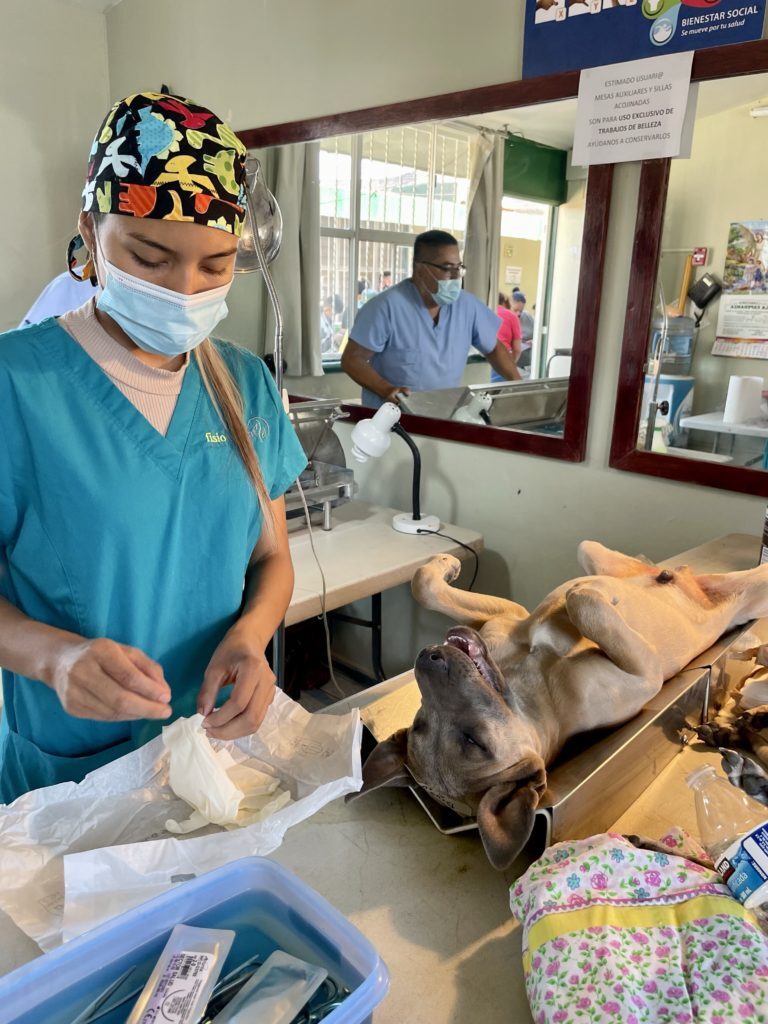
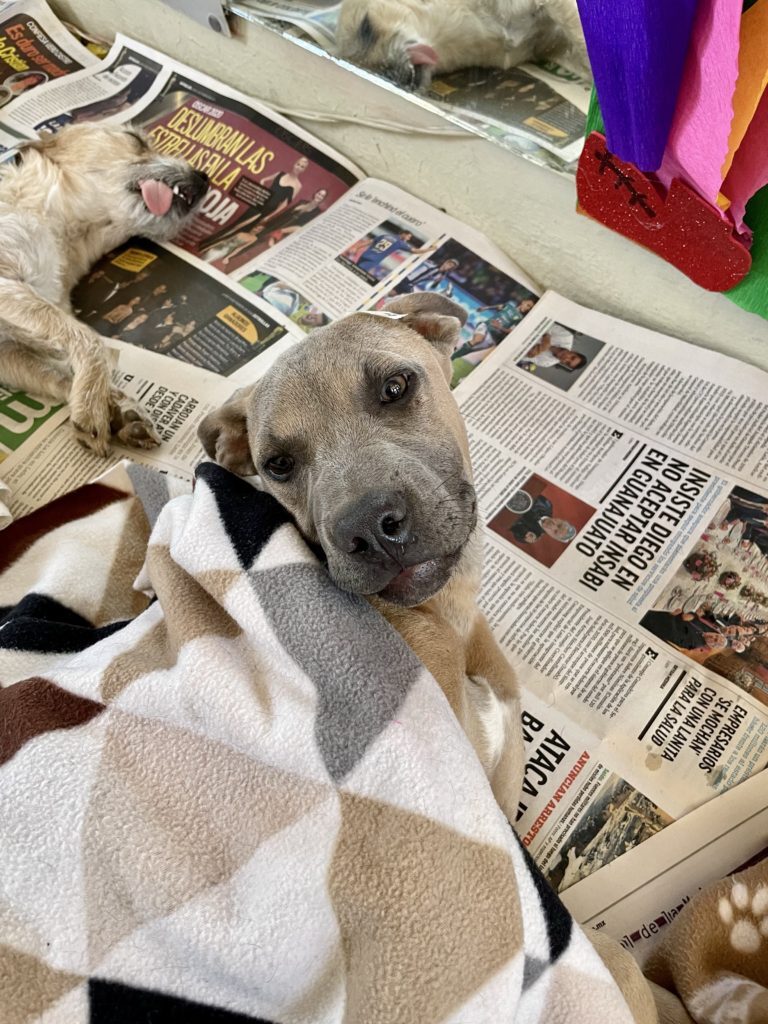
How do I schedule my pet to be sterilized?
If you would like to sterilize your dog or cat, check our Facebook page for sterilization campaign announcements and instructions. Campaigns are announced one to two weeks prior to the event and are handled on a first come, first served basis; no appointments are taken.
What is the cost?
There is a small charge for this procedure of $150 pesos (US $7.50) per animal. Any additional amount will be greatly appreciated, as the average cost to us is $475 pesos per case.
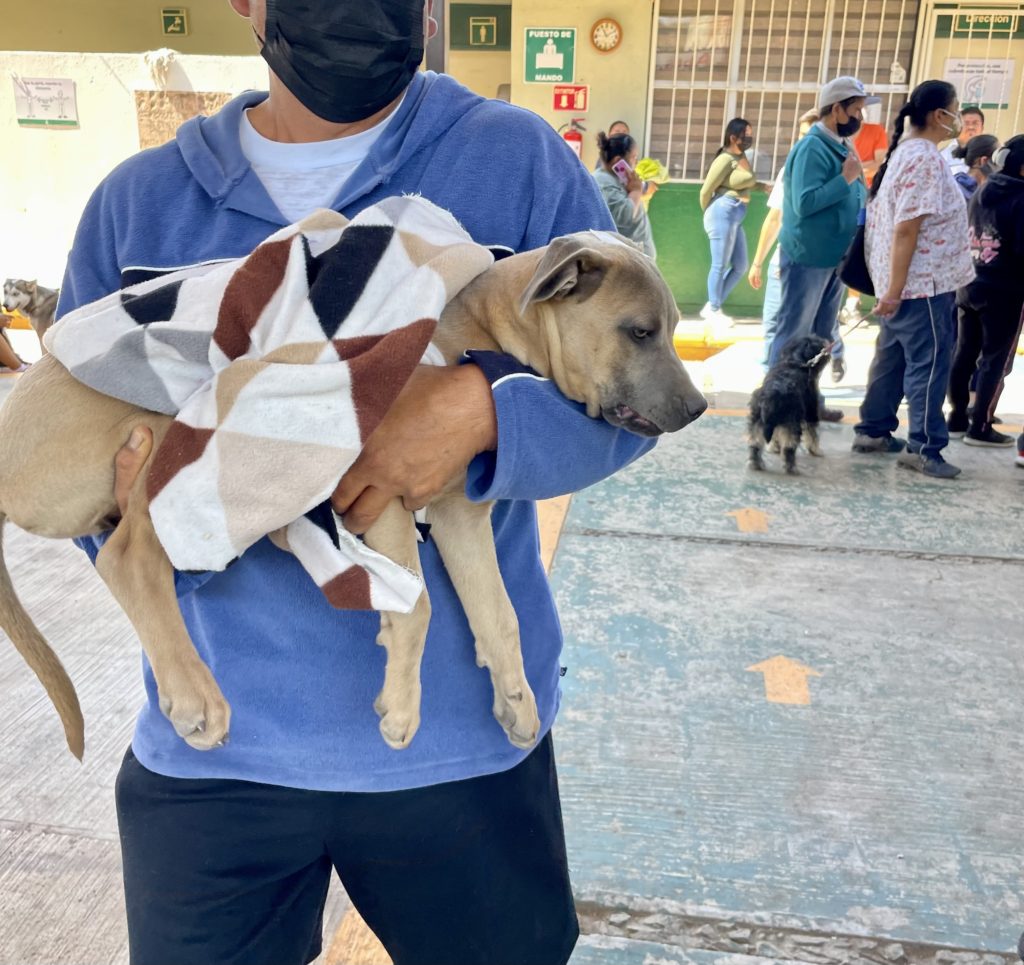
What about rescue?
Our volunteers all engage in rescue to one degree or another. But there are far more animals in need of rescue than resources available. That is why Amigos focuses on sterilization. In our 21-year history our 23,000+ sterilizations have reduced the number of unwanted, unloved street animals—likely by a million or more. We are not a rescue organization, and we have no facility to house animals.
If you are moved to rescue an animal, here are some options that may be helpful:
Independent rescue: You can take an animal needing help to a local veterinarian. You’ll be expected to pay for shots and other care to restore the animal to health, and for boarding the animal until it’s adopted unless you can provide foster care yourself. Most vet clinics let their visitors know that they have an animal available for adoption, and so can help you find it a home.
Rescue organizations: The following organizations and groups have rescue as their mission. Sadly, often they are at maximum capacity and cannot accept more animals.
- Adopta Guanajuato, a website that connects rescuers with independent adopters
- Fundación Corazón Animal, a private shelter located in the village of Cajones
- Pet Lovers of Guanajuato, a Facebook group connecting people with pets
- Tlacuatzín Rescue Guanajuato Capital
- Centro de Control Animal (the city’s animal control center), Calle Arboledas S/N, Colonia Arroyo Verde (Tel. 473 733 4839). Animals taken there will be held for a few days and euthanized if not adopted during that period.
Euthanasia to end suffering: If you find a gravely ill or injured animal, Amigos will pay for it to be euthanized if you take it to Clínica Veterinaria Can-Cat at Calle Alhóndiga No. 25 (tel. 473-732-9353), across the street from the municipal Police Station.
